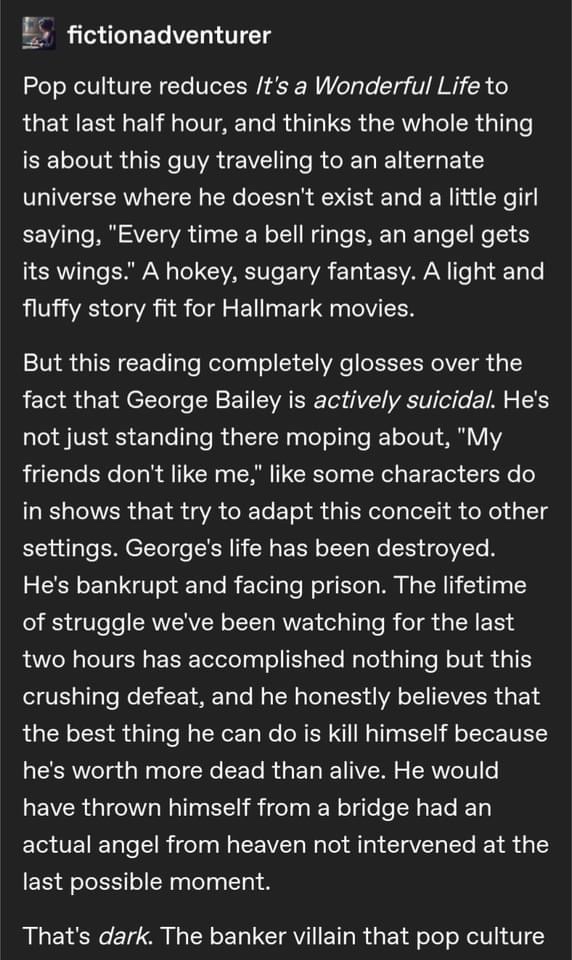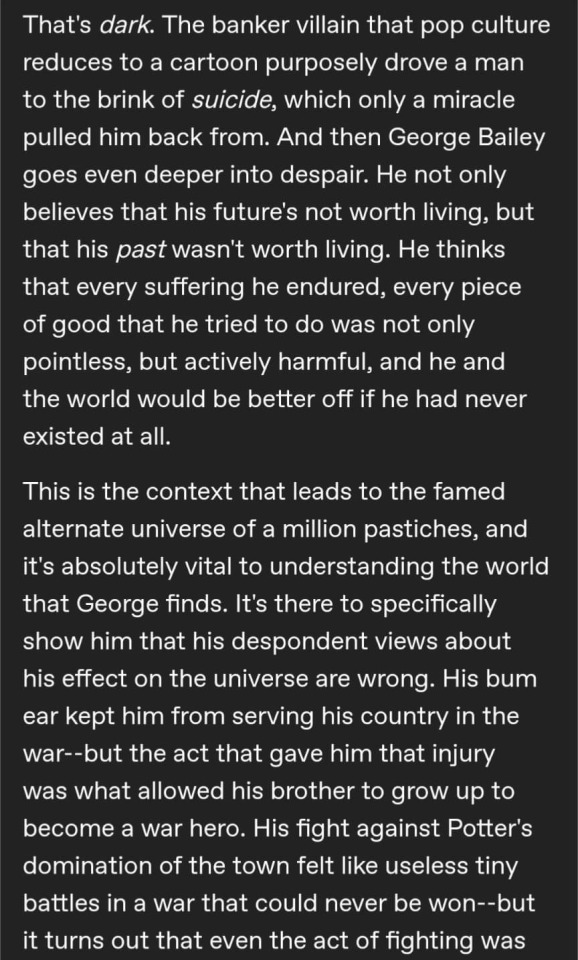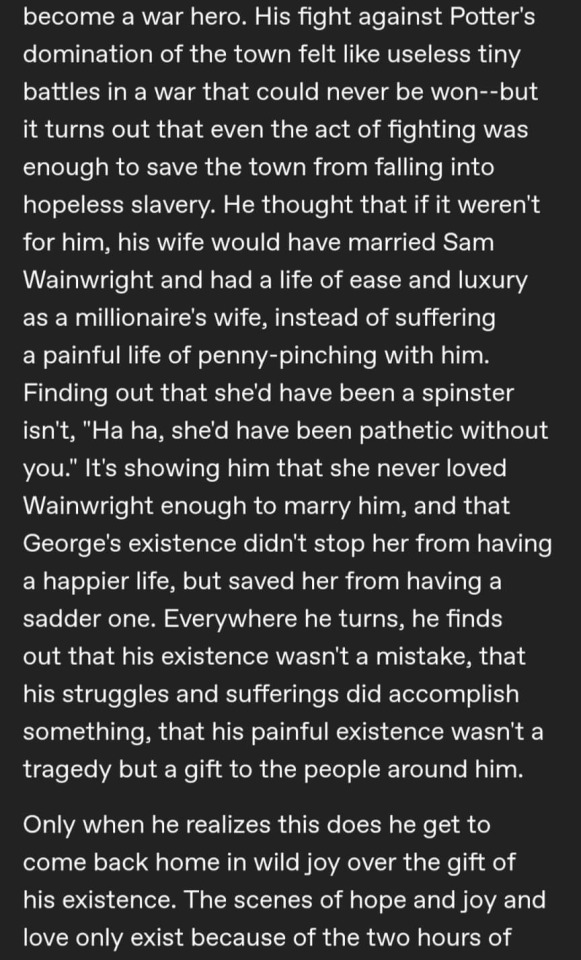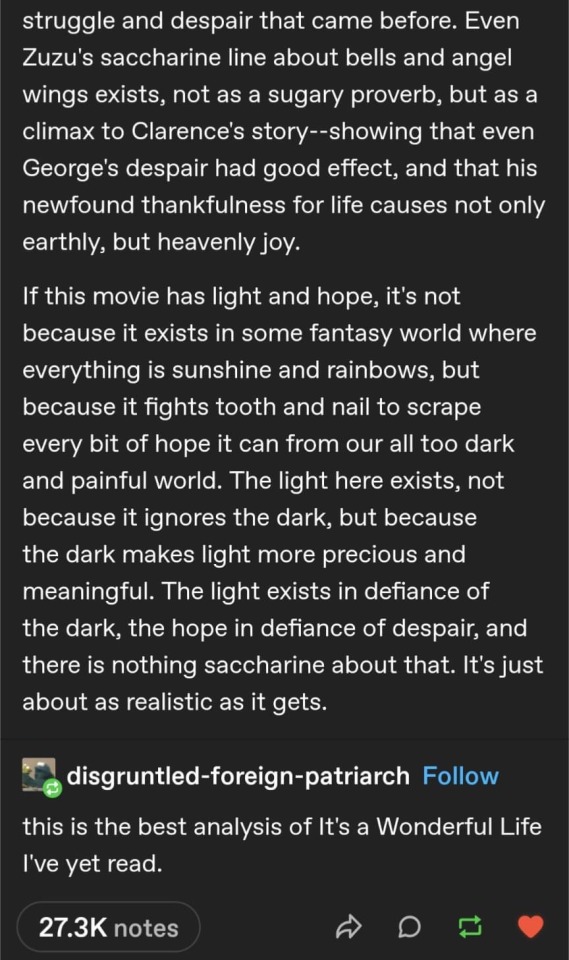#why I fucking hate sugary reductionism in pop culture sometimes
Text




YES.
ALL OF THIS.
THIS is why this film still hits so hard after all these years.
It’s not some sugary BS about “you can think yourself out of suicidal depression by just learning to appreciate what you’ve got”.
It’s about the fact that people who work really fucking hard for their communities experience active, targeted, criminal pushback from exploiters.
About the fact that caring, in all its manifestations, is incredibly physically and mentally taxing and is often done by disabled people - YES, George Bailey is a disabled protagonist. His impairment prevents him from military service and actively causes him chronic pain that, as a person who lives with it, *will* affect his energy levels and fatigue constantly.
Notably, IAWL actually has a bunch of disabled characters. Not only is George disabled, but I’d put money on his uncle who loses the money being ADHD and very possibly having other learning disabilities and the film *actively* flagging that fact to the audience, even if it doesn’t necessarily know what ADHD is.
Which casts a whole new light on its principal villain being disabled. Instead of Old Man Potter being a flat caricature of “disability = evil”, what he *actually* is is a fantastic example of the fact that marginalisation in one axis does not prevent someone being an active oppressor - and wealth and class privilege, in particular, tend to mean a person actively acting to oppress other people who share their marginalisation in order to privilege the interests of their own class as a whole. Sometimes even damaging their own individual interests to do so.
It’s also super interesting that the *material* miracle in the film is not the appearance of an angel to show George what life would have been like if he had never existed, but the *community solidarity* that saves him from jail and his family from penury. The supernatural intervention can change his *mindset*, and that is *incredibly* important, given it *literally* stops him killing himself, but the *material* intervention is mutual aid from his own community that he has given so much to.
Which is incredibly radical as a message. It’s not saying “faith is worthless”; it’s saying “faith can be an incredibly important factor in creating resilience in moments of despair, but we can’t, and *need not*, wait for a supernatural miracle to save us; we have the capacity to save ourselves and each other in our hands right now”.
#it’s a wonderful life#film criticism#disability#disability in media#mutual aid in media#george bailey#wow I know I liked it’s a wonderful life but apparently my feelings are way stronger than I appreciated#why I fucking hate sugary reductionism in pop culture sometimes#fuck I love this movie#disability in film
176 notes
·
View notes